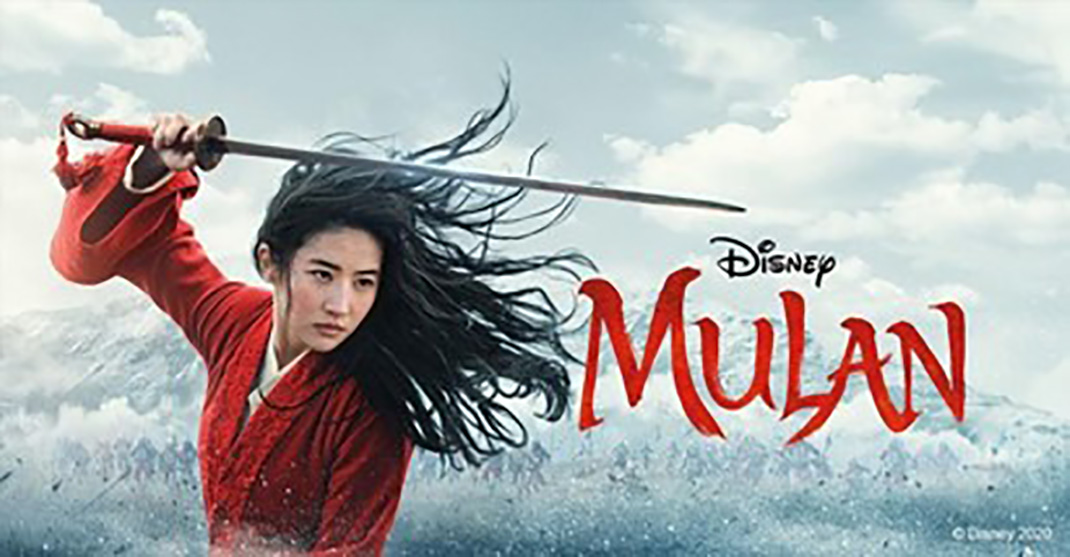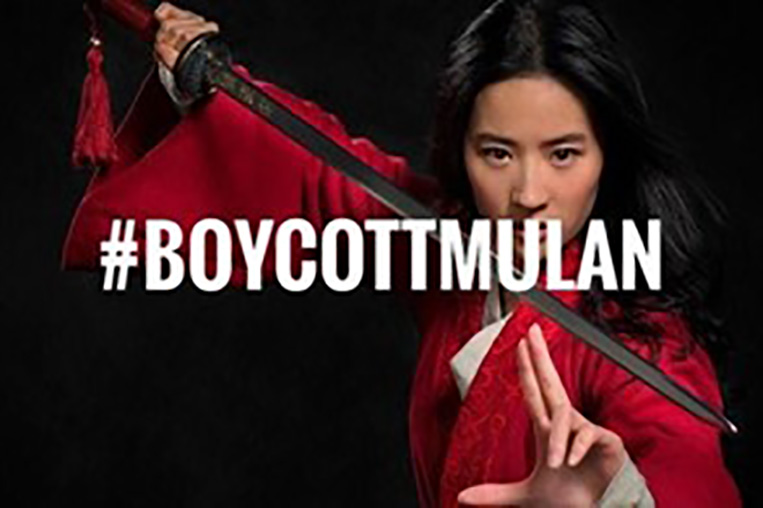Boycott Mulan Controversy Depicts Orientalism:
How Orientalism In Films Shapes Racial Stereotypes
October 15, 2020
Disney’s new film, Mulan (2020) has been an issue throughout the world in terms of boycott since before it was even released. Boycott Mulan movement criticized Orientalism—refers to the distorted perspective of Western society towards Eastern culture—in Mulan (2020).
On September 4, 2020 Joshua Wong, who is a Secretary General of the Pro-Democracy party in Hong Kong, posted his opinion on Twitter saying, “but because Disney kowtows to Beijing, and because Liu Yifei openly and proudly endorses police brutality in Hong Kong, Wong[I] urge[s] everyone who believes in human rights to #BoycottMulan.” Via Twitter, Wong criticized Liu Yifei’s mention of advocating for Hong Kong police and China Special Thanks in the ending credit of Mulan (2020).
Controversy of Mulan (2020) began with Liu Yifei’s post on Social Networks Services (SNS). Liu Yifei posted on Twitter, “I support the Hong Kong Police. You can call attack me now. What a shame for Hong Kong” (2019). Conflicts between Hong Kong government and Hong Kong citizens were serious such as severe violence of Hong Kong police against protesters in Hong Kong when Liu Yifei uploaded her post.
Not only Liu Yifei’s mention but also China Special Thanks in the ending credit intensified critics of Mulan (2020). While Chinese public security officials were Uigur have been suppressed harshly, Walt Disney company expressed appreciation for Chinese public security.
Even though Mulan (2020) dealt with Chinese culture, Walt Disney company made the film without profound understanding of Eastern culture and history: Orientalism.
The larger the influence of the film and media industry, the greater the significance of creating the contents based on accurate understanding of another culture is. However current movies, songs, and dramas have lots of distortion of information and discriminating stereotypes.
For example, Dr. Jack G. Shaheen (2017) criticized racism in Hollywood in his documentary and book Reel Bad Arabs: How Hollywood Vilifies a People. Shaheen (2017) explained the way Hollywood injected offensive stereotypes on Arabs—dangerous, primitive animals, patriarchy—by providing scene of movies, caricatures, and animations such as Raiders of the lost ark (1981), Happy Hooker Goes to Washington (1977), True Lies (1994), Back To the Future (1985).
Protocol (1984) showed Arabs who kidnapped American blonde girls as primitive mankind. True Lies (1994) described Arabs as rich but stupid when dealing with money and commit their all money to purchase weapons and use in terrorism. Shaheen (2017) also mentioned that belly dancers in Hollywood are always described as sexual mores.
Even though those descriptions in Hollywood are far from real Arabic culture, the power of Hollywood is so big that racial discrimination and stereotypes are created in society. Those distortions result in increasing hostility such as Islamophobia towards Arabs and Muslims because Hollywood has depicted Arabs in a bad way.
However, Hollywood never mentioned innocent Palestine refugees and victims of war and denied the truths in the Middle East. Moreover, those stereotypes on Arabs and Muslims shaped by Hollywood kept influencing the formation of public perception and policy making in America. Hollywood allowed America to regard Palestine people and Muslims as threats, which led to unemployment of Middle East people in America.


